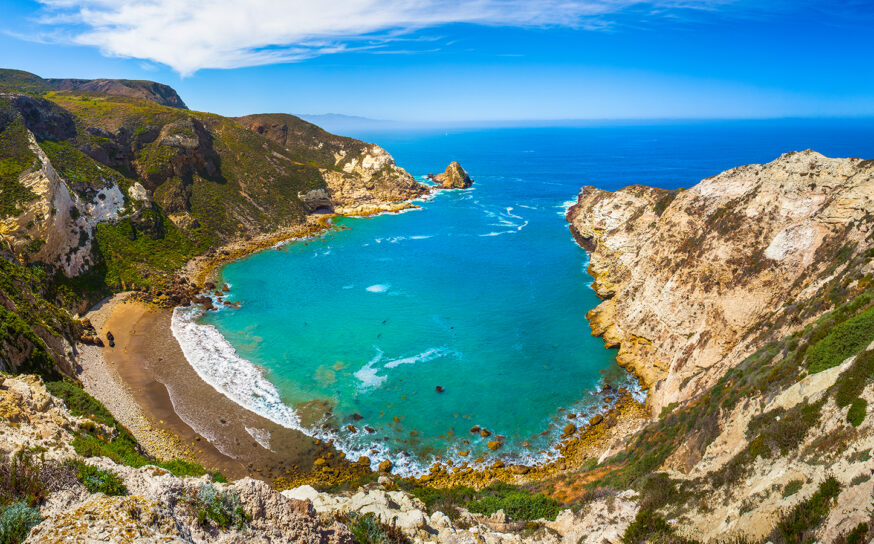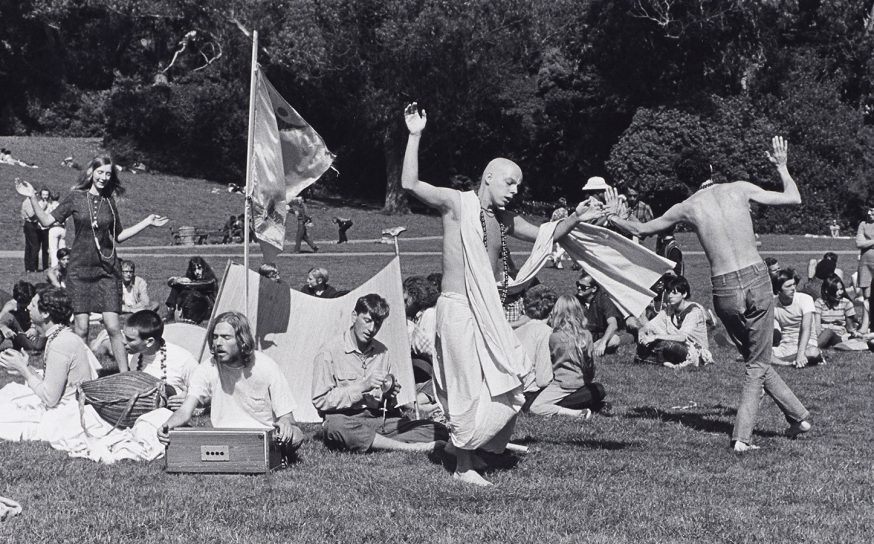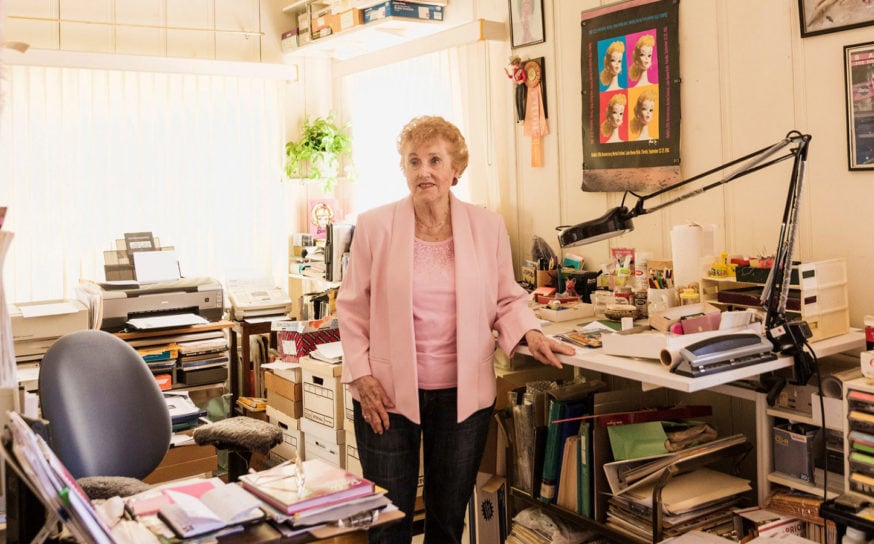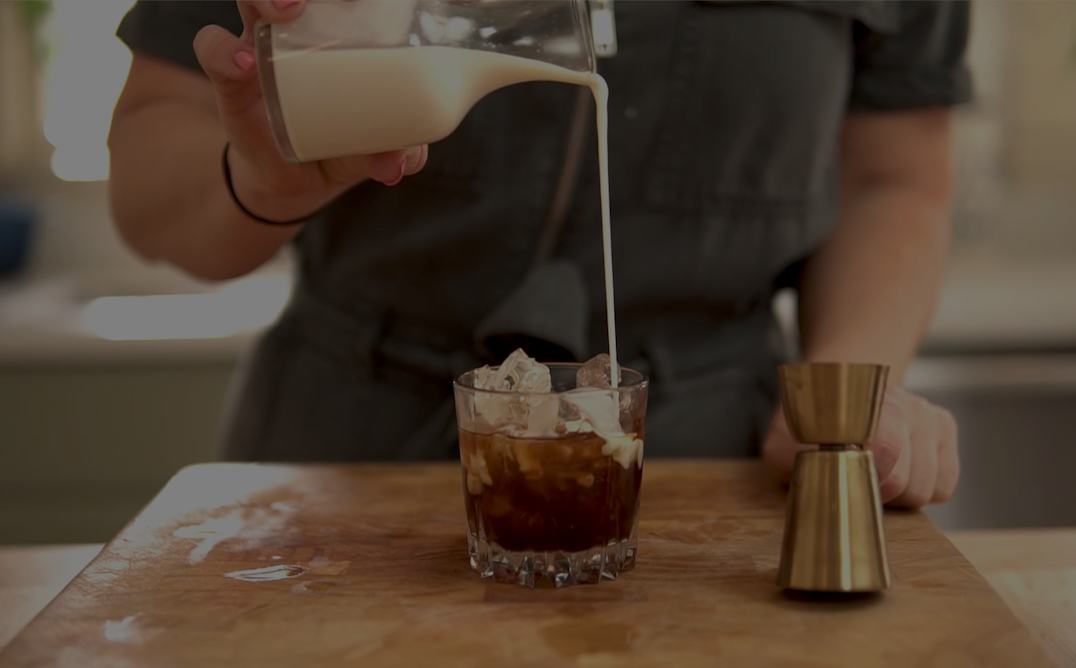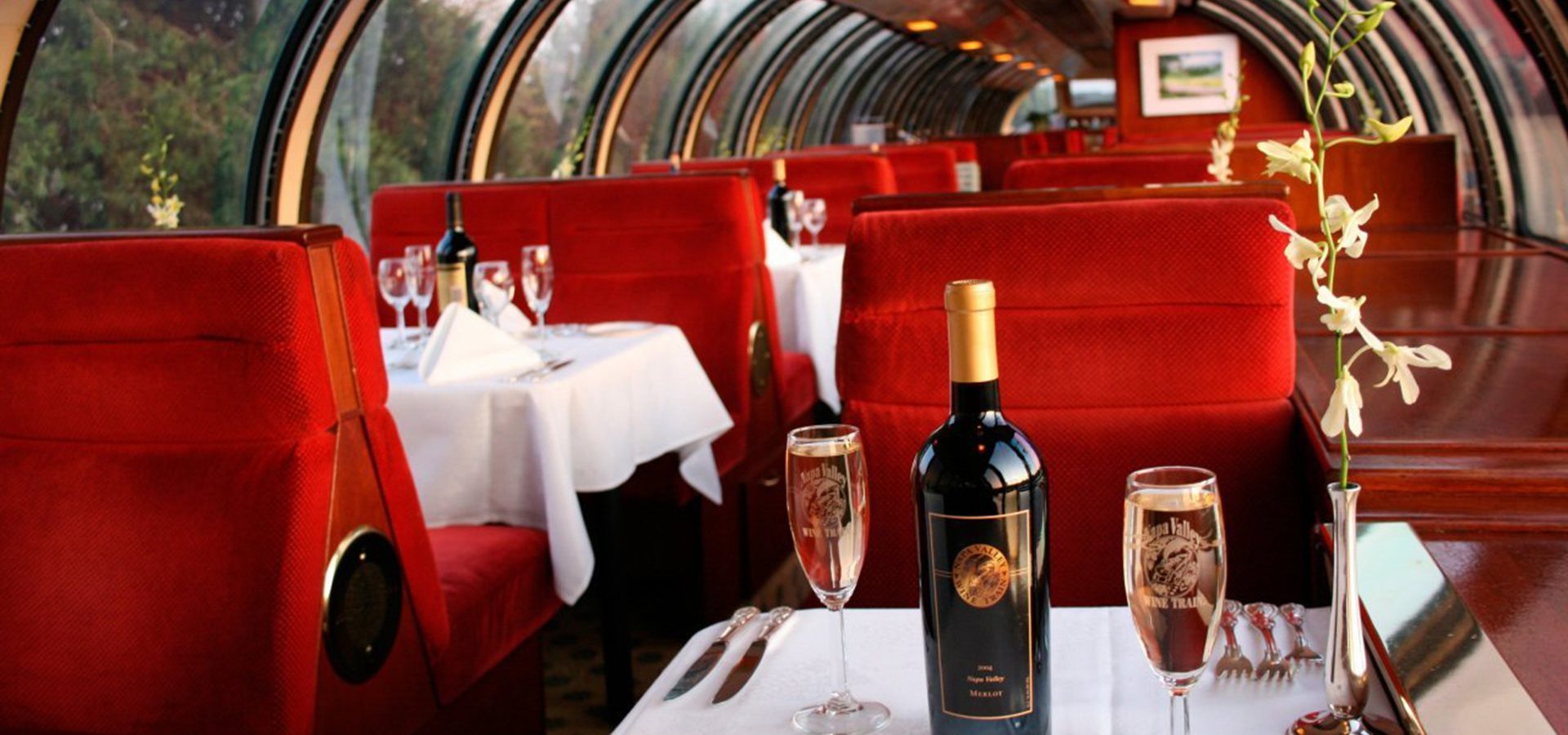
Tracks and Tannins: All Aboard the Napa Valley Wine Train
Since 1989, the Wine Train experience has served as a gustatory experience as much as a wine-tasting tour.
-
CategoryFarm + Table
If you’re a California resident, NorCal in particular, chances are you’ve heard of the legendary Napa Valley Wine Train, a mainstay of the grape-lovers paradise for nearly 30 years. If you’ve never actually jumped onboard, now you can take a peek at the experience via a feature that recently ran in Paste.
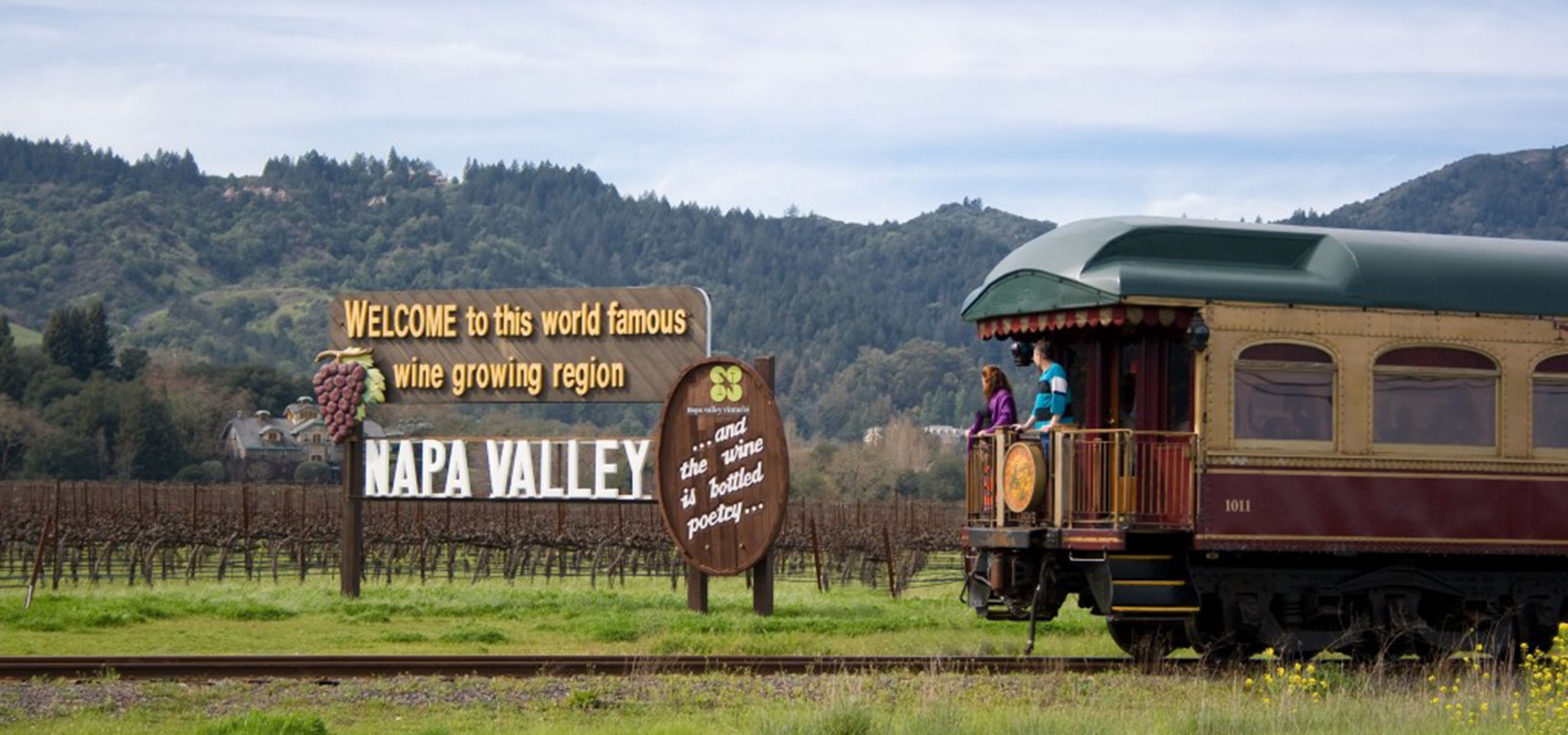
According to the write up in Paste, “Food and drinks are staggered along the journey’s stops: Since 1989, the Wine Train experience has served as a gustatory experience as much as a wine-tasting tour. Dessert options range from the cinnamon-crusted tart au citron to warm flourless chocolate cake highlighting brandied cherries. Main courses include grilled duck sausages or seared halibut with a lentil and white bean saffron ragout. The appetizers are no less alluring: ciabatta served with arugula, pesto, caramelized onions, and Manchego cheese, or a lighter steel-cut oatmeal brulé option. As for libations, drinkers can go beyond the effeminizing power of grapes thanks to a full slate of hard liquors and mixed drinks available for purchase to supplement the journey.”
According to the company’s website, The Napa Valley Wine Train’s history is almost as old as the state of California’s. The rail line upon which the train travels was built in 1864 by San Francisco’s first millionaire, Samuel Brannan, to transport visitors to his spa resort of Calistoga. Shortly thereafter, Brannan was forced to sell many of his holdings to pay for his divorce, and the railroad became the property of California Pacific Railroad. Then in 1885, Southern Pacific bought the Napa Valley Railroad. During the late part of the 19th century and the early part of the 20th century, the railroad played a vital role in the economic and agricultural development of the Napa Valley, and provided regular passenger service to the communities of the Valley.
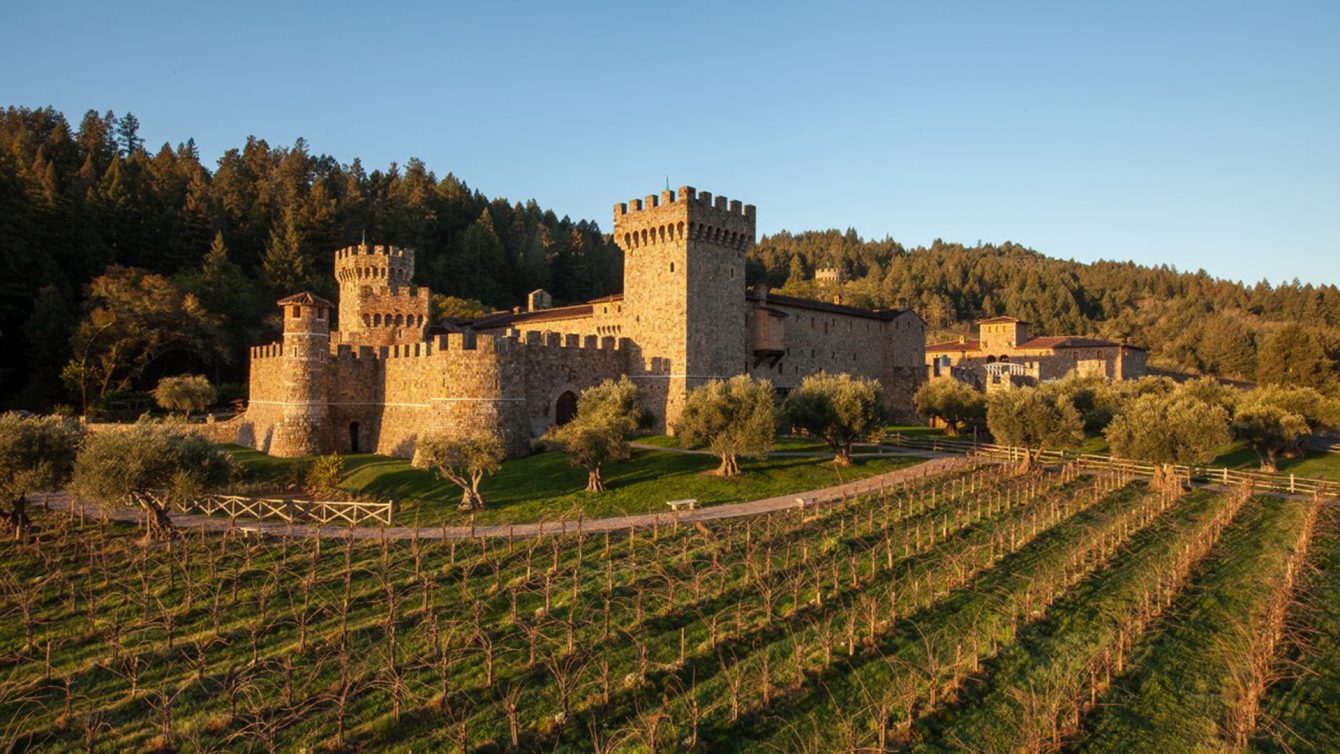
With the birth of the automobile, however, the train began to lose much of its former importance. Passenger service was discontinued in the 1930s. In 1960, Southern Pacific abandoned the right of way between St. Helena and Calistoga, and eventually, Southern Pacific was running only one freight train a week on the remaining tracks. In an effort to make a profit on the faltering rail line, Southern Pacific decided to abandon the line and sell the property in 1984.
Some of the people in Napa Valley did not want the rail line to be abandoned and lost. Lou Schuyler, a retired Southern Pacific Engineer, had driven freight along the route, and understood the significance and beauty attached to this specific railroad. After discovering Southern Pacific’s plan to abandon the rail line, he formed a group called, “The Society for the Preservation of the Napa County Railroad,” and went on a quest to put a rail saving measure on the Napa county ballot. The initiative failed to pass, but the overwhelming public support of the railroad piqued the interest of a group of concerned Napa citizens. This group, founded by Dr. Alvin Lee Block was known as the Napa Valley Wine Train Inc. Their goal was to create a railroad that would preserve the transportation corridor for future use and reduce traffic congestion in the Valley.
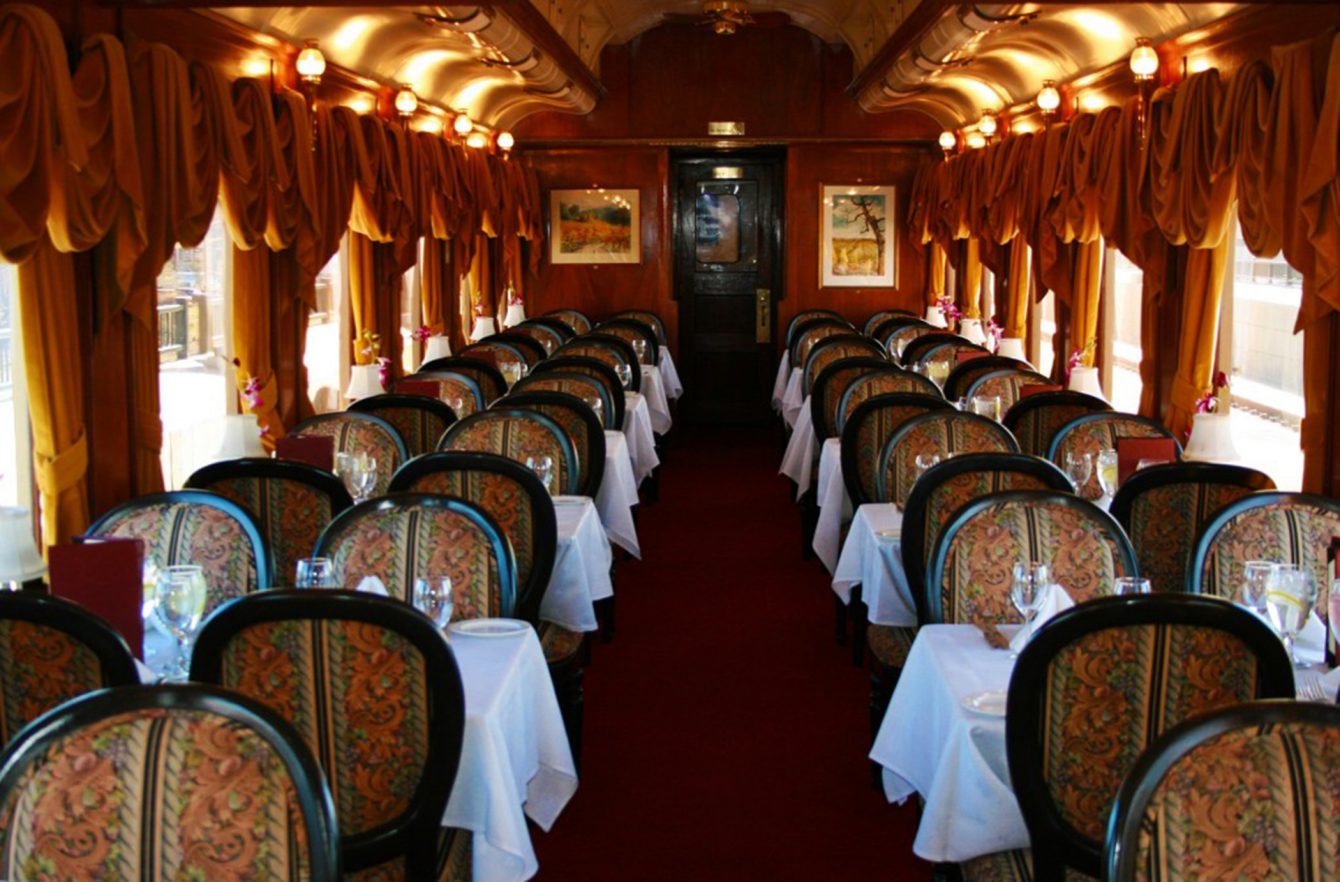
Immediately, the Napa Valley Wine Train Inc. went on a hunt to find investors. Their search led them to San Francisco resident, Vincent DeDomenico, inventor of Rice-A-Roni and former owner of Ghirardelli Chocolate and Golden Grain Pasta. DeDomenico loved the concept of the Wine Train and offered to buy the whole operation. The Napa Valley Wine Train Inc. sold him most of the shares in the company and appointed him as the Napa Valley Wine Train’s President and CEO.
With DeDomenico involved, the Napa Valley Wine Train was finally able to buy the line from Southern Pacific and begin the transformation into the company that it is today. The company began to acquire antique rail stock and renovate them into beautiful, elegant cars. The Napa Valley Wine Train also began to hire their team. There were food and service experts to provide visitors with an unmatched luxury rail experience; engineers, conductors, and mechanics to operate the antique railcars; and reservation agents, managers and many more employees to make the company function.
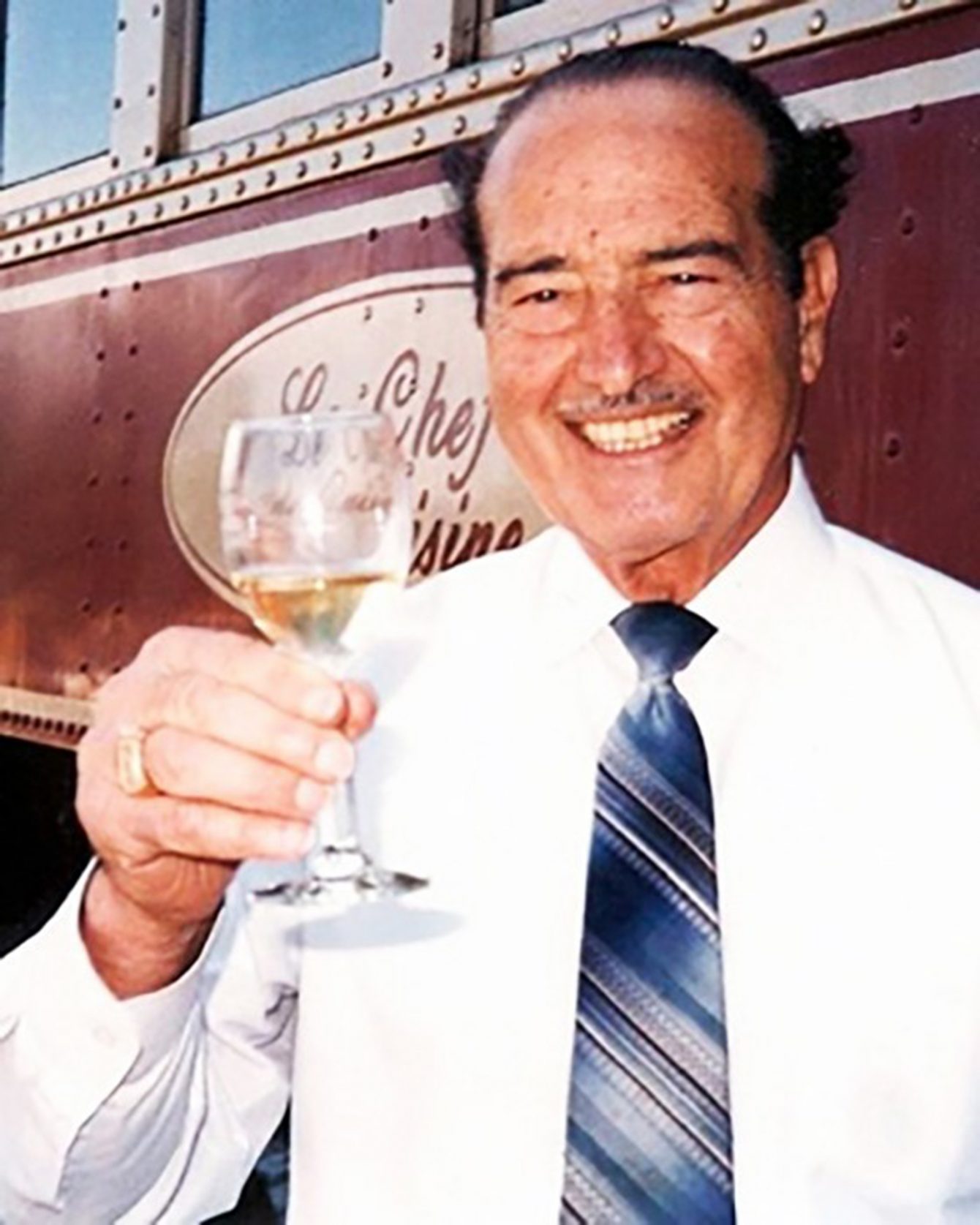
On September 16, 1989, The Napa Valley Wine Train took its inaugural passenger trip and has been steadily running through the Valley ever since.
Interest piqued? Ready to raise a glass and whistle stop your way through the vineyards? You can make reservations for the upcoming harvest season here.
4 California-Based National Parks You May Have Missed
Wonderous roads less traveled.
What a Trip: Remembering the 1967 Summer of Love
The de Young Museum commemorates the 50th anniversary of a San Francisco cultural movement.
Meet the Californian Who Dressed One of the Most Iconic Figures in History
Her work inspired designers like Bob Mackie, Nicole Miller, Jeremy Scott and Jason Wu.



